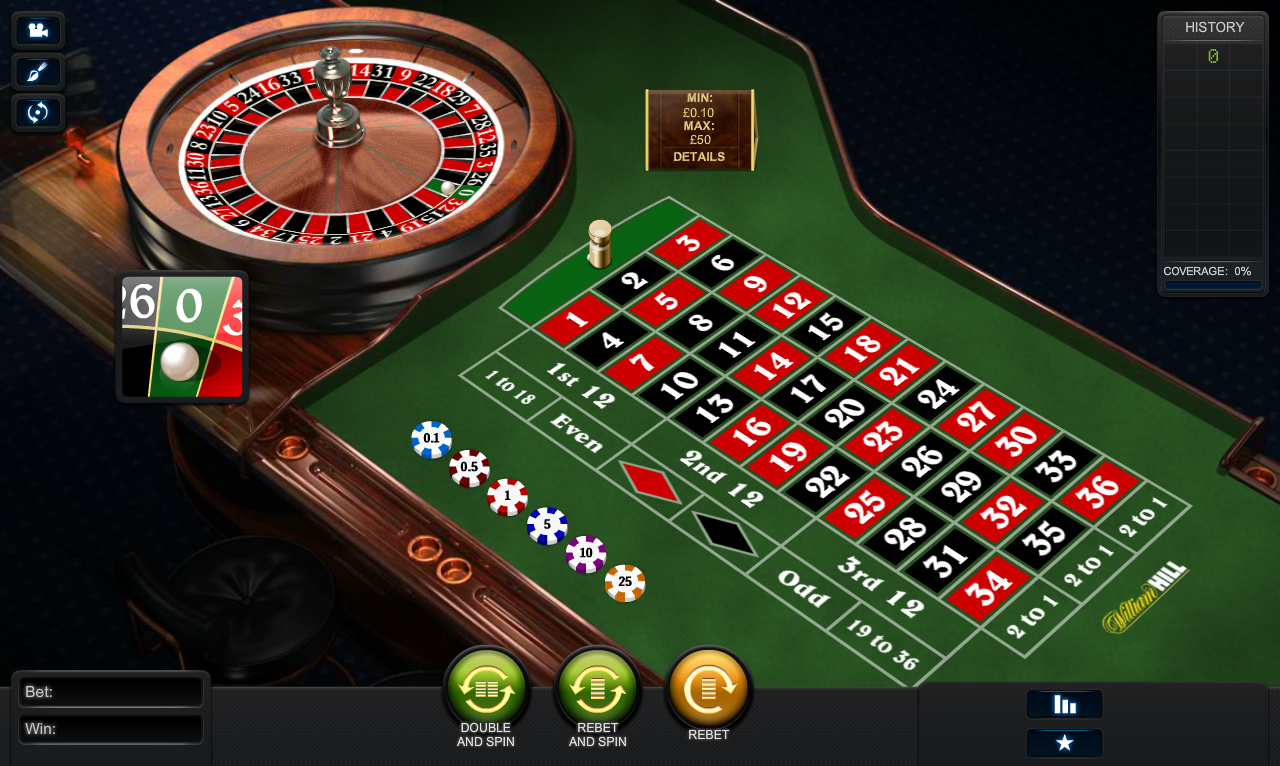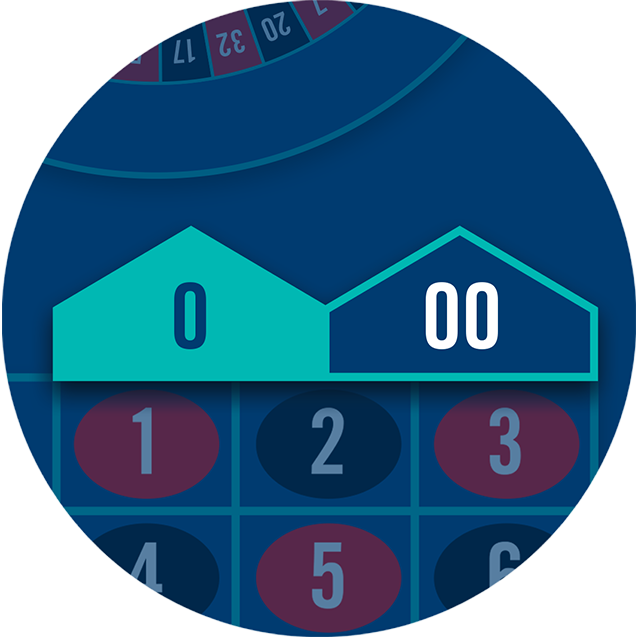
Understanding Roulette Odds
Dive into the complex odds of roulette, explore systems and strategies to improve your play.
- Odds and probabilities
- Effective strategies
- Understanding table layouts
- Roulette tips
A detailed exploration of the payouts and significance of the 0 pocket in roulette. Learn about the variance between European and American Roulette and how the single and double zero pockets affect betting strategies and house edges.
In roulette, betting on 0 (or 00 in American roulette) is treated like any other single number bet on the wheel. When you place a straight bet on 0 and it wins, the payout is 35 to 1. This means if you wager $1 on 0, you receive $35 in winnings plus your original $1 stake, for a total of $36. If you bet $10, you would receive $350 plus your $10 stake, totaling $360.
Roulette is a casino game where players place bets on where a ball will land on a spinning wheel divided into numbered pockets. The game exists in several variations, with the two most common being European roulette and American roulette. The primary difference between these versions lies in the number of zeroes on the wheel and, consequently, the house edge—the mathematical advantage the casino maintains over players.
The zero pocket represents the casino's built-in advantage in roulette. In European roulette, there is a single 0, while American roulette features both 0 and 00 (double zero). These zero pockets are colored green and do not belong to either the red or black color categories. When the ball lands on 0 or 00, all even-money bets (such as red/black or odd/even) lose, which is a key mechanism through which the casino maintains its edge.
Explore how different wheel designs, such as American and European, influence game odds and player strategies. Learn how the single and double zero pockets are crucial to understanding your chances of winning and the house's edge.

Roulette payouts vary depending on the type of bet placed. All single-number bets, including betting directly on 0, pay 35 to 1. Other bet types pay different amounts— for example, betting on two adjacent numbers (a split bet) pays 17 to 1, while betting on a color or odd/even pays 1 to 1.
In European roulette, the wheel contains 37 pockets: the numbers 1 through 36 plus a single 0. If you bet directly on 0 as a straight-up bet, the payout remains 35 to 1. This means your expected return follows the same pattern as any other single number. European roulette has a house edge of 2.7%, which is calculated from the presence of the single zero. For every $100 wagered, the casino expects to profit approximately $2.70 over time.
American roulette features 38 pockets: the numbers 1 through 36 plus both 0 and 00. You can bet on either 0 or 00 individually as a straight-up bet, and each pays 35 to 1. However, American roulette carries a 5.26% house edge, which is significantly higher than European roulette due to the additional zero pocket. This higher edge means the casino profits approximately $5.26 for every $100 wagered. The reason American roulette has such a substantial disadvantage for players is that despite having an additional pocket (reducing the probability of any single number winning), the payout remains the same 35 to 1 as in European roulette.
A straight-up bet on 0 means placing your entire wager on the single zero pocket. This is the riskiest bet on the wheel—you have only a 1 in 37 chance of winning in European roulette (2.7% probability) or 1 in 38 in American roulette (2.63% probability). However, if you win, the 35 to 1 payout provides a substantial return relative to your stake.
A split bet allows you to wager on two adjacent numbers simultaneously. You can split 0 with numbers 1, 2, or 3 (since 0 is positioned at the intersection of these numbers on the table layout). A split bet pays 17 to 1. While this reduces your potential winnings compared to a straight bet, it doubles your chances of winning since you now have two numbers that result in a payout.
In roulette, 0 pays 35 to 1 as a straight-up bet, meaning a $1 wager returns $36 total ($35 profit plus the original stake). The presence of 0 (and 00 in American roulette) creates the casino's mathematical advantage, with European roulette offering a 2.7% house edge and American roulette offering a 5.26% house edge. While betting on 0 offers attractive odds if you win, it remains a low-probability outcome. When playing roulette, it's important to remember that the longer you play, the more the house edge affects your overall returns, so responsible gambling practices are essential.
Our highly recommended casinos offer top-notch experiences and secure gaming options.





Dive into the complex odds of roulette, explore systems and strategies to improve your play.

Learn how the house edge impacts your bets and ways to minimize its effects.